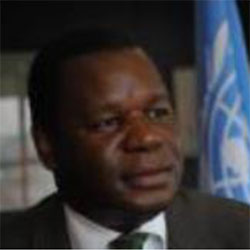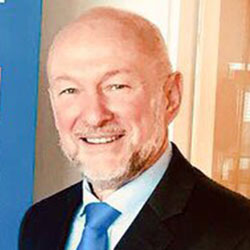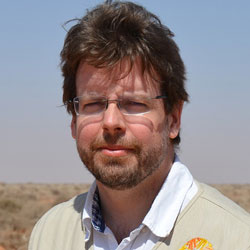The link to the "nexus" and what it means for non-UN actors: Follow-up questions
On 8 June, PHAP and ICVA organized an online event exploring the various UN reforms that are currently being rolled out in relation to the humanitarian-development-peace nexus – including the repositioning of the UN development system to deliver on the 2030 Agenda, the restructuring of the UN peace and security pillar, and the shifting of the management paradigm in the UN.
The event featured presentations from Stanlake Samkange, Senior Director, Strategic Coordination and Support, World Food Programme (WFP), Mario Samaja, UN Resident Coordinator in Mauritania and Gareth Price-Jones, Senior Humanitarian Policy and Advocacy Coordinator, CARE International. While many of the questions from participants were answered during the event (listen to these in the event recording), there were more questions than there was time for, and the guest experts have answered follow-up questions in writing, which you can now read on this page.
“ Many NGOs do not share the Sustainable Development Goals (SDGs) as the primary framework they follow. How can we best help ensure that NGOs are aware of and understand the development framework in the countries that they operate in? ”
- MEAL Assistant, Kenya

Stanlake Samkange
The best way for civil society actors (including NGOs) to help is to ensure that all of its actions relate to national SDG frameworks and strategies, and somehow contribute to achieving results against one or more SDGs targets and indicators.
Civil society actors and NGO management can, when discussing funding with donors, seek guidance on the extent to which SDGs should frame project or programme or organizational engagement and delivery. Reaching out to UN agencies for guidance and support may also be an option, depending on context and level of partnership engagement.
Most countries have a Humanitarian and/or development NGO coordination body or forum. Find out which organizations are engaged or representing the wider community in these forums and with UN inter-agency forums. They can then facilitate a conversation about how best to align with the SDGs, within the organizational limits that may apply due to mandate, funding, or comfort levels. Perhaps you could seek a training for a group of interested NGOs or civil society organizations at national or sub-national level. Global networks such as PHAP may also have advice or recommendations about how to grow capacity in this area.
Engagement and participation of all stakeholders and all people is at the heart of Agenda 2030 and the Sustainable Development Goals (SDGs), not least under SDG 17. The role of civil society organizations in connection with Agenda 2030 and the SDGs is reflected in paragraph 129 of the Secretary-General’s December 2017 Report.
“129. The Sustainable Development Goals are the fruit of an unprecedented, wide - scale and inclusive consultation process, with strong leadership by Member States, extending far beyond the United Nations to include key stakeholders at the global, regional and country levels in shaping the future we want. National Governments, at all levels, as well as parliaments, civil society organizations, businesses and philanthropic organizations, the scientific and research community, academia, volunteer groups and other stakeholders — all have a part to play in implementing the 2030 Agenda and ensuring mutual accountability with respect to the Sustainable Development Goals.”
Under clear national leadership, the civil society, development partners, businesses and other stakeholders should be extensively engaged during the design, implementation, monitoring and evaluation of the country-led Voluntary National Reviews and subsequent United Nations Development Assistance Frameworks.
Humanitarian-development actors, including civil society organizations, that may decide to operate in isolation or not directly relating their work with national priorities and strategies may risk becoming irrelevant at country-level.

Mario Samaja
Largely context specific. I would suggest two main paths for engagement on this matter:
1) strengthen communication, awareness raising, dissemination and training on SDGs and Agenda 2030; this would require efforts by all partners, including UN country teams, NGOs and in many cases also Government bodies.
2) Explore partnerships that allow different stakeholders to team up strategically and programmatically; one of many possible ways is joint analysis and joint planning between NGOs and the UN as in the case of the new Mauritania Partnership Framework for Sustainable Development. One key point on which UN-Government-NGO partnerships and synergies should be particularly beneficial is SDG implementation at the decentralized level, counties, districts, municipalities, communities.

Gareth Price-Jones
As someone who’s worked my whole career in NGOs, I think the onus here is on NGOs to do the research, and start using the SDG framework in our language, missions and development goals – most of us share the ambition of the SDGs, and they are broadly agreed by Member States, the UN and much of civil society. With this common language in place, it makes sense for us to use it. This may be an up-front cost for some NGOs, as we abandon sunk costs in our own frameworks and language, but in the longer term presents a substantial saving – as well as being able to demonstrate progress towards global shared goals, it should save all of us a huge amount of time we would otherwise spend ‘reinventing the wheels’ of outcomes, indicators and language. It’s also important to ensure that development plans, such as UNDAFs and their successors and HRPs, are publicly available on a website, at least in English but also ideally in local languages as well, so that everyone is aware of how the global SDG language is being applied locally.
“ Mario mentioned the crucial role of partnerships. How do you see the inclusion of NGOs and other partners moving forward if/when the Joint Steering Committee (JSC) and the UN Country Teams (UNCTs) (where the NGOs are not represented as a rule) have an important role in taking the work on the humanitarian-development-peace nexus forward? ”
- Junior Fellow, Switzerland

Stanlake Samkange
Most countries have a Humanitarian and/or development NGO coordination body or forum. These bodies can and should have representation on the (H)CT even if it is on an intermittent basis. The NGO coordination forum can either invite the (H)CT to come and present their thinking and strategy for engaging on the nexus, discuss opportunities for engagement and collaboration – or request representation on the (H)CT. This should and must, in turn, become structured and regular engagement in, for example, integrated national planning exercises and documents which in turn are the basis of operational partnerships.
Working in partnerships is one of the core principles of Agenda 2030, which is driven by Member States. The role of the UN System, as well as of the civil society and the private sector, is to support countries to achieve the Sustainable Development Goals. Together, Governments, the UN System, civil society organizations and private sector entities can jointly contribute to mobilizing the means required to implement Agenda 2030 through a revitalised global partnership for sustainable development, based on a spirit of strengthened global solidarity, focused in particular on achieving common results to end needs of the poorest and most vulnerable.
As Gareth mentioned during the Webinar, the NGOs can and should engage in the broader Nexus dialogue. They need to “speak out” and make their contributions. The role of the NGOs, including of local actors, will remain crucial. They must participate in global, regional and country-level discussions to advance the Nexus and contribute to the reform of the UN System. The NGOs should maintain an open and frequent dialogue with the UN Country Teams, but particularly with the UN Resident Coordinators, to ensure their views and positions are communicated and considered in national sustainable development strategies.

Mario Samaja
New, more strategic and more operational partnerships are of the essence. While NGOs are not necessarily represented on UNCT, they can be associated in forms that are context specific; this is the case of the joint planning exercise in Mauritania. Also, the humanitarian country teams offer examples of partnerships that should provide hints also for contexts that are not entirely humanitarian. I hope that renewed partnerships between UNCTs and NGOs (and other partners, for that matter) will be an element of interest to the JSC; examples from the field (of which Mauritania is one) should be useful in this sense.

Gareth Price-Jones
This is one of the areas I’m most concerned about in the reforms. Our work in CARE has highlighted the very different conceptions of development and peace work among multilaterals, States and civil society. Civil society concepts tend to be much more community-based and bottom up, and the potential for this to scale is huge given the hundreds of thousands of NGOs out there. Without their voice being somehow included, it’s tempting to see the only scalable solutions as monolithic top-down efforts led by states and the UN.
Because we share the same goals, it’s in the interests of both the UN and Civil society to ensure those different world-views are included in governance structures, and I’d like to see active efforts to ensure civil society voices, in particular of local and women-led organisations in those spaces. Given the huge number and different perspectives and capacity of NGOs, I recognise this is really difficult. Providing structured ‘representation’ of such a diverse community often results in bland, watered-down positions, but at the very least ensuring regular consultation with a wider community, and space for ‘wild card’ speakers at such forums as the UNCT is critical. A further important step is to ensure transparency about such meetings (notes, regularity of meetings, contact people etc.), so that civil society members that fear such processes are going off track can check authoritative sources, and if needed engage and make their voices and concerns heard.
“ How does the UN Reform make a difference for creating an opportunity to the national government and national NGOs to have a voice in humanitarian financing? ”
- Programme Analyst (DRM and Resilience Building), Ethiopia

Stanlake Samkange
UN Reform’s success will rely upon a consensus of support for a culture-shift away from insularity, reactiveness and competition towards anticipation, transparency, research and collaboration.
Member States have echoed that a funding compact would require commensurate changes in the UN system’s transparency, accountability and results reporting. Ultimately, it is the human realities behind these figures and targets that must drive the case for change — those whose communities have been swept away by climate-induced storms and shocks; health pandemics; spiraling levels of inequality; the one in three women around the world facing some form of violence — and our common commitment to ensure that we leave no one behind and reach those furthest behind first. So, the Reform process is informed by these factors, which in turn create opportunities to voice national actor’s needs.
The United Nations system is actively pursuing a funding compact with Member States to strengthen and align core institutional support with the support being provided for core functions and results to be achieved in supporting countries in implementing the 2030 Agenda.
The funding compact should clearly underscore the need for significantly greater financial resources to be made available at country level to enable the United Nations system to deliver the range of support that Member States require in implementing the Agenda 2030.
The UN Country Teams should actively pursue the establishment of country-level pooled funding mechanisms aligned with the results architecture of the UNDAF, in line with humanitarian and development financing needs of a given country.

Mario Samaja
In the case of Mauritania, planning was highly coordinated among NGOs, UN and Government. Coherent, coordinated analysis and planning based on country needs and priorities is a central element to both the UN reform and improved financing. UN work at the country level should progressively become more coherent and aligned to national priorities (including humanitarian ones); associating NGOs to the analysis, planning and implementation should open new space for a voice in defining several priorities, and to influence humanitarian financing.

Gareth Price-Jones
I think there are substantial risks and opportunities here. One risk is that, by empowering Resident Coordinators, funding is diverted to only those projects that speak the same language and align with a top-down, approved plan, and independent, innovative and community-based projects get defunded. There is also a risk that Humanitarian Action becomes instrumentalised to primarily deliver on SDGs, rather than focusing on lifesaving. As an example, we could see RCs prioritising funding for education, which helps sustainably meet long term SDG objectives, over water trucking, which doesn’t. It’s important that we recognise that while humanitarian work contributes to achieving SDGs, that’s not why we do it – we do it to save lives. It’s a subtle but sometimes important distinction.
The opportunity is that by demonstrating that humanitarian work contributes to SDGs we can demonstrate the investment potential of putting in more resources. We know that, sadly, human need alone is not enough to mobilise sufficient resources – hopefully by being able to demonstrate the strategic investment potential, we can bring in more government and private sector money to meet the needs.
“ For the private sector and other non-UN actors, the reasons behind the historical divide between development and humanitarian actors might not be as clear as for people inside the system. Can we use this to our advantage when attempting to "break down silos"? ”
- Associate Program Officer for Disaster Risk Reduction, Climate Change and Environmental Sustainability, Germany

Mario Samaja
Yes, good point. It can help highlight that the divide is largely artificial, cultural. For private sector and other non UN actors it may make sense to engage across the divide; this in turn should prompt “people inside the system” to rethink and push the boundaries.

Gareth Price-Jones
We certainly can, though I see the challenge as being more the other way around – how do we ensure they know enough history to know why those silos were created in the first place. As noted in answers above, one of my fears is that the kind of strategic thinking behind UN reform could lead us to horrible consequences, where immediate human needs are deliberately deprioritised in order to focus on longer term goals. To prevent this we need to ensure that everyone still understands why that divide was created – it didn’t happen by accident – and why many are concerned about erasing it today, and this needs an understanding of the humanitarian principles and the practical realities of delivering assistance in conflicted spaces.